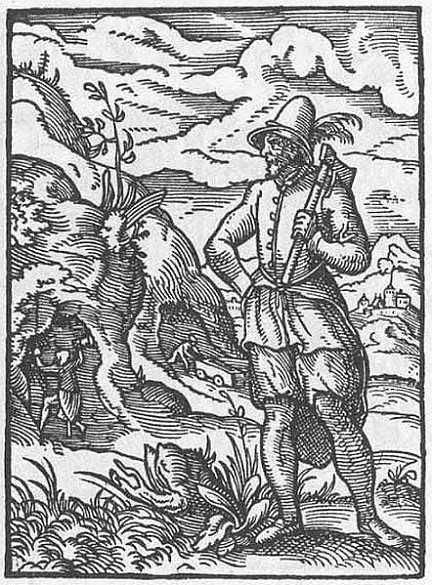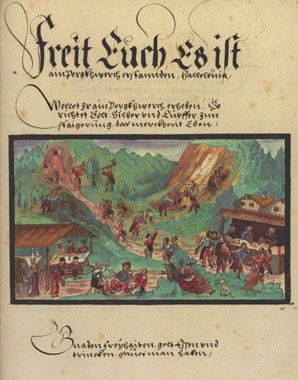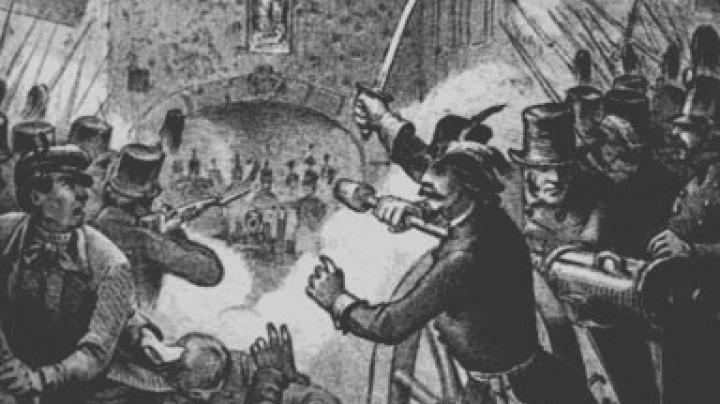Anti-Fuggerians in the mines
The Tyrolean miners faced extremely hazardous working conditions. Long working hours, unreliable payment and the rights possessed by the Fugger family heaped fuel on the fire of their discontent.
By the sixteenth century, Schwaz in Tyrol had become a sizeable mining community of approximately 11,000. While mining had been a sideline throughout the centuries, in the late fifteenth century it became the main employment for many in this community.
The new basis of production for mining was the so-called Bergfreiheit: regardless of who actually owned the land, everybody was allowed to work in the mines as these areas were directly subordinate to the sovereign of the territory and even had their own jurisdiction. However, as they were always notoriously short of money, the Habsburgs frequently sold the mining titles to aristocrats and merchants. The Fugger family were among the buyers of rights to the mines in the region of Schwaz, and as they were one of the main financiers of the Court, they were given sole access to many rights: as leaseholders of the sovereign’s silver ore mines in Schwaz they were lords over thousands of miners. They also received special conditions when purchasing ore and controlled the trade in foodstuffs. In addition, they were given the right to coin their own money. Merchants like the Fuggers made huge profits from the silver mines.
The miners, however, were suffering under the pressure of hard labour and financial extremity exacerbated by overpriced everyday goods, high tax burdens imposed by the sovereign and the irregular payment of their wages. All these factors combined to stoke the discontent of the mining community of Schwaz. The situation finally escalated in 1525 when proposals were made to abolish a number of religious holidays.
The miners downed tools and demanded that the abolished holidays be re-instated, that their wages be paid on time and that Fuggers’ mining rights, an object of particular hatred, be revoked. When Ferdinand reacted to the uprising by threatening punitive measures, the miners, armed with sticks and poles, seized the town of Hall together with all its access roads. Ferdinand was forced to climb down and revised the regulations concerning the holidays. The Fuggers’ rights, however, remained firmly in place, along with many other abuses. In the Salzburg Peasants’ War that followed in the same year, the miners fought side by side with the farmers for better living conditions.
















